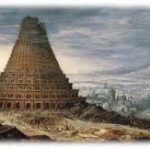The Wahoo Whitewash
Chief Wahoo is dead. The Cleveland Indians’ mascot will enter his final wigwam this year. After the franchise finishes their “last chance merchandise” cash grab, the Chief will join the 40 or so other Native American professional and collegiate icons that have been removed in the last few decades. Now, the Washington Redskins are one of the few teams standing between activists and the complete elimination of native images from our sports landscape.
As unpopular as it might seem, we should all hope they fail. The efforts of these well-meaning actions contribute to a greater problem: the whitewash of anything in our culture that reminds us of our treatment of Native Americans. As each native sports icon disappears, we lose a chance to highlight a prominent and rich people that were here long before our Asian, European and African ancestors. We walk farther and farther away from responsibility for the greatest tragedy in U.S. history. Plus, we bury any chance to rectify our national shame.
It is high time we did so. There is a national guilt around the treatment of natives that is extremely uncomfortable for us to accept. It goes against the image America, and Americans, like to present worldwide. It spits in the face of our national identity and individual character.
We support the rule of law, so we refuse to accept that our Mayflower settlers stole native food stores for years to start their settlements. We believe in manifest destiny, so we avoid the fact that whole tribes were moved thousands of miles with little regard for their health and safety because they were “in the way.” We are a nation of progress, so we rationalize how our government has broken every single treaty it has ever made with a native tribe. Every… single… one! We are a country that promotes cultural growth, so it’s inconvenient to talk about how there were four million natives here when Europeans arrived… and there are less than three million now. We are a nation of prosperity, so we put on blinders when it comes to the fact that many reservations rival third world slums. Name me another ethnic population in American that has declined at all in the last 400 years, much less lost one out of every four people.
So anything that triggers this guilt has to go. We simply can’t accept that we stole their food… their land… their culture… their identity… and finally their self respect. So we marginalized them, labeled them as “savages,” and relocated them to areas where they would be easier to neglect. But that didn’t do it. So we used native names for our military weapons to remind us that they were vicious and deserved their fate. But even with our Bureau of Firearms (a native term for rifles), Tomahawk missiles, and Apache helicopters, we still felt bad.
So now, we must wash away any and all images from our culture to cleanse our collective conscious of these sins. Whether it was the generals and politicians in the beginning or the activists and university presidents today, the goal is still the same. Make sure future generations never have to confront the ugly truths about the Trail of Tears or smallpox blankets or why Chief Wahoo had to go.
Instead of the removal of these images, it’s time to embrace them. Let’s restore more culturally-appropriate native mascots to the sports world and do it through an overall campaign that shows more respect to natives in general. We could connect each school or team with a particular local tribe. We could hire tribal elders and members to develop authentic mascots based on accurate representations of chiefs and cultural rituals. That way, the future “Tomahawk chop” will be a celebration of native culture and not considered a mockery of it.
I know this can be done because it’s happened already. I’m a proud graduate of Central Michigan University, which is one of the few schools left with a native mascot. As a student, I attended powwows and learned all about the Chippewa tribe through school-sanctioned events. It made me curious to learn more about natives in America.
I learned that the Huron tribe consisted of four different tribes who populated an area from southern Michigan to Toronto. I learned that Illini comes from a native word meaning “best people.” I learned about Chief Black Hawk and why soldiers yelled “Geronimo” when they jumped out of airplanes (he was famous for his bravery). I learned that natives took pride in the term “redskin” before activists told them it was offensive. Then I learned that if we removed native language completely, we would have to rename the majority of U.S. states and hundreds of cities across the country, from Miami to Milwaukee. I never would have sought any of this education if Central Michigan was nicknamed the wolves, Eastern Michigan had always been the Eagles, or if the University of Illinois was nicknamed the Wildcats.
Once we begin to highlight and celebrate native culture through strong representations, we could begin to restore a pride into native tribes and cultures. We could provide more positive references across the spectrum. Universities could donate a percentage of athletic revenues from these teams to local tribes and receive reimbursement from the U.S. government as restitution for 500 years of systematic abuse and genocide. The more attention and money we give native tribes, the more we improve life on reservations to match it.
Then icons like Chief Wahoo will be seen as the exception and not the norm. As a proud Irish-American, I’ve never met any fellow Irish-Americans who greet me with fists raised. Yet, no one is serious about the removal of the University of Notre Dame’s mascot. So let’s stop trying to whitewash history and discuss it instead. Let’s take native culture seriously and improve life on the reservations with it. When we do that, we will celebrate our country’s “true” founding fathers the way our nation celebrates all cultural diversity, proudly and publicly. It will take courage and bravery. But it’s time we yelled “Geronimo!” and took that dive.




